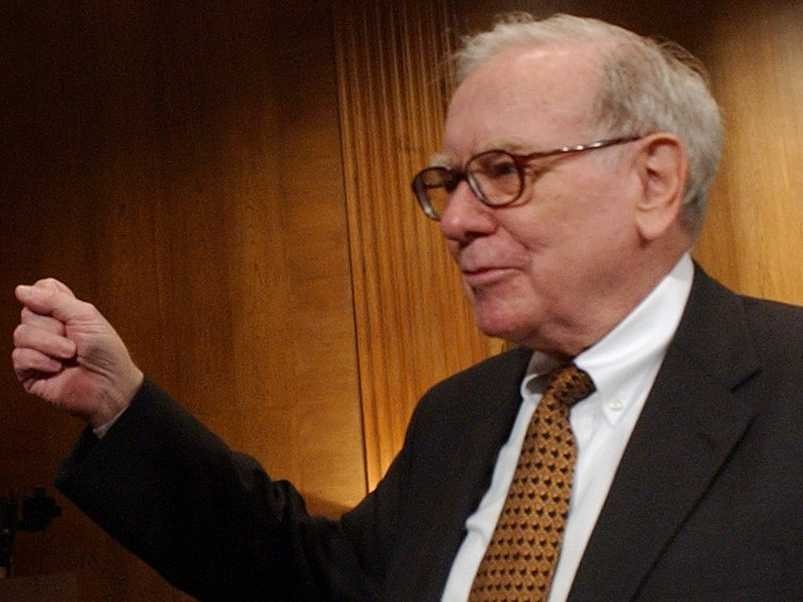Buffett Family Values How To Raise WellGrounded Heirs
Post on: 16 Июнь, 2015 No Comment

Words of wisdom from Warren Buffett, his son Peter, Marilyn Carlson Nelson and Liesel Pritzker.
The talk at FORBES’ Second Annual Summit on Philanthropy, held June 4 at the United Nations, was about children. Specifically, how to raise them in a way that encourages them to change their world, rather than obsess over which sports car is in their garage. Warren Buffett, his son Peter, Marilyn Carlson Nelson (former chairperson of the Carlson Cos. and her family’s matriarch) and Liesel Pritzker Simmons, from the fourth generation of the Chicago Pritzker dynasty, led a roundtable on the singular circumstances of superwealthy families and held the audience of 150 billionaires or near-billionaires rapt.
FORBES: Warren, let’s start with you. How do the very affluent raise children to share their values? How did you do this in your family? You’ve successfully raised three children who are very active in philanthropy.
WARREN BUFFETT: Our kids had a very normal growing-up. I mean, they’ve only and I’ve only lived in one primary house that I’ve owned in my life, and I bought that in 1958. So they did not see us moving into progressively fancier houses; they did not ride in private planes. They went to school on the bus. Every member of the Buffett family in Omaha has gone to a public school. They went to the same school that their mother had gone to. They went to the same high school that she’d gone to.
The Forbes E-book On Warren Buffett The $59 Billion Philanthropist. chronicling 50 years of Buffett’s investment savvy and unprecedented giving, is available now for download.
We were living in an area where, in today’s dollars, our neighbors were making maybe $75,000 a year, or something of the sort. So they never really thought that we were economically different.
FORBES: As your wealth grew, did you actively try not to change your lifestyle?
WARREN BUFFETT: No, I just lived the life I wanted to live, and my wife lived the life she wanted to live. And our kids grew up that way.
There wasn’t anything that we wanted that we didn’t have, but we didn’t crave a lot of possessions or anything like that. We were enjoying our life. Our house was the center of activity, particularly for my daughter’s friends. And the neighbors didn’t think of us as doing anything special. They kind of wondered what I did, because for six years I didn’t even have an office.
For six years I worked at home out of a room off my bedroom and had no secretary and no bookkeeper. So there was no reason for our kids to develop any unusual feelings about money.
FORBES: Peter, when you started seeing that your father was on the FORBES list of richest Americans, how did you square that with your father and how he raised you?

PETER BUFFETT: Well, that would be about the time that we found out how much money we had as a family. I’m not kidding. It was when I was in my 20s that my mom and I talked at some point, because there he was, on this list. And we laughed about it, because we said, “Well, isn’t it funny? You know, we know who we are, but everybody’s treating us differently now.” It was a fascinating switch, although not a huge one because we didn’t live in that world or a cultural framework where there was a lot of wealth being shown. Our friends were as surprised as I was.
WARREN BUFFETT: The kids were formed by that time, and they knew who their friends were, and their friends were their friends because they liked ‘em, and not because they were the rich kid on the block or anything of the sort.
FORBES: Marilyn, you had a slightly different situation. You’re the second generation in the family business. Your dad was building it up as you were growing up. By the time that you were running Carlson, you probably had to deal with “How do I raise kids in a family that’s fairly affluent?”
MARILYN CARLSON NELSON: Unlike the Oracle, sitting next to me, who went into a room upstairs and wove straw into gold, my dad was an entrepreneur who had this vision to build a company. He had a very humble beginning. He was from a Swedish immigrant family. And we’d go out to dinner, and if dessert wasn’t included on the menu, he’d ask us, my sister and me, if we wanted to order dessert. If we said yes, he’d scowl at us and give us a lecture on compound interest. [Laughter.] And we got it over and over again. We had to do the same thing about voting whether we would invest in the company or take a summer vacation. And we got three votes: my mother, my sister, and I, and he had four. So we did sometimes get to take a vacation.
As time went on and the three families–my sister’s family, mine and my dad’s–all lived next door to each other, that same conservatism showed up when he would drive past my home and call me and say, “Are you giving a party?” I’d say, “No, why?” And he’d say, “So many lights on.”
So I think the sense of respect for capital was clearly something that we grew up with. And my children grew up with, very obviously, a grandfather who was entrepreneurial, had a passion for the business. He made it the most exciting thing on earth every Sunday after church to go stop at one of our properties. And he’d ask the kids questions: What did they notice? Was it clean? Were the people nice? Were they friendly? And “What a joy it is to be in the service business.” So the family had this purpose.














